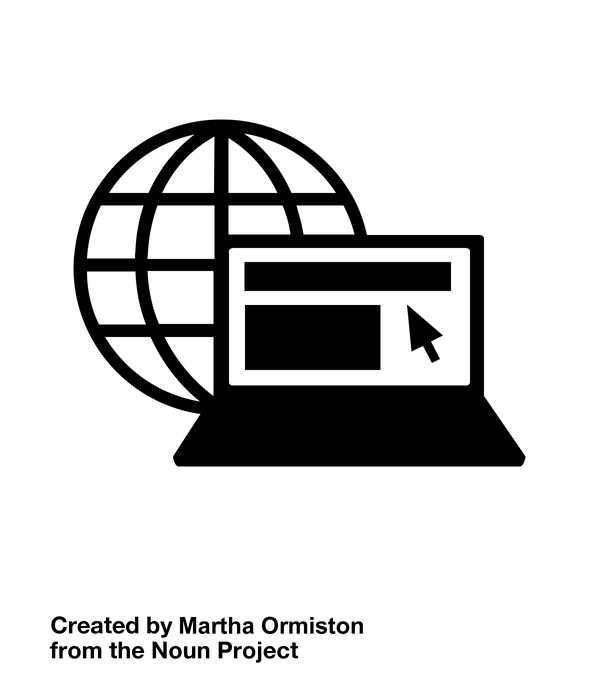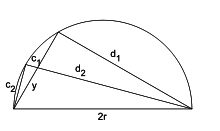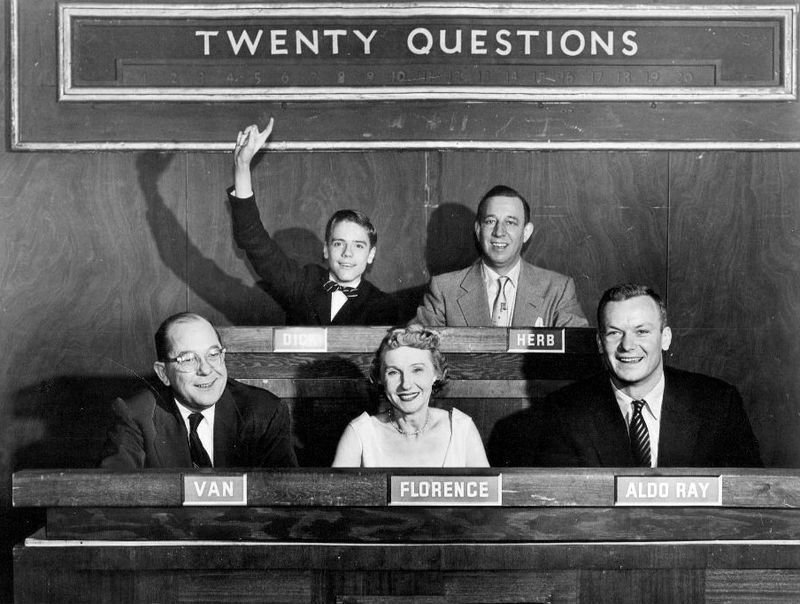Copyright, Creative Commons &
Publiek Domein
Een praktische handleiding
Gwen Franck (Creative Commons, EIFL)
@g_fra





- Copyright & Auteursrecht voor dummies
- Publiek Domein
- Creative Commons
- hoe werkt het?
- waar vind je CC?
- hoe (her)gebruik je CC-licensed materiaal?
- Hoe maak je je eigen werk open?
- Businessmodellen gebaseerd op het Publiek Domein
Waar ga ik het over hebben vandaag?
Copyright en auteursrechten voor (en door) dummies

"Caution Tape" by Eugene Zemlyanskiy on Flickr CC BY

"all rights reserved"
Vuistregels
-
dood auteur +70 jaar
- in 2016: "alles gecreëerd na 1876"
- fysieke eigendom is niet gelijk aan intellectuele eigendom
- gebaseerd op Bern Conventie (1886) - laatste update in België in 1999
- Voorwaarden:
- 'fysieke creatie' (dus geen ideeën of theorieën)
- originele bijdrage van de auteur
- registratie of deponering niet noodzakelijk
Maar:
- internet & social media: (c) niet aangepast
- 'out of commerce' & 'orphan' werken
- databanken
- verschillende wetgeving in verschillende landen
- lengte auteursrechtelijke bescherming: 50j, 70j, ...
- panoramavrijheid
- fair use / citaatrecht : "limitations and exceptions"
- ...
- "the right to read is the right to ..."
- licentie- en contractuele bepalingen


Duur (c) wereldwijd

Panoramavrijheid in Europa

Uitzonderingen voor Onderwijs en Onderzoek
- citeren
- bloemlezingen
- Actualiteitsverslaggeving (informatierecht)
- uitvoering ihkv schoolactiviteiten, examens
- collectiestukken ihkv onderzoek en privé-studie
- uitleen met educatief of cultureel doel
- karikatuur, pastiche of parodie
- mededelingen in een gesloten netwerk
- reproductie tbv personen met een handicap
- [...]

- meer dan alleen auteursrechten
- portretrecht (20j)
- naburige rechten (50j)
- morele rechten, vermogensrechten (70j), distributierechten
- afgeleide werken & remixes
"I am so confused" by Ian Sane on Flickr CC BY 2.0

Het glorieuze Publieke Domein
("the commons")









- vrij van auteursrechten
- kan dus naar believen worden geraadpleegd, bewerkt, gereproduceerd, verkocht, ... worden (ook voor commerciëel gebruik)
- ook materiaal waar nooit auteursrechten op kunnen rusten ('onoriginele' data, feiten, wetten, ...)
- bij technische reproductie zonder originele toevoeging worden geen nieuwe auteursrechten gecreëerd
- bewerkingen, vertalingen en 'remixen' kunnen wel (c) krijgen
- automatisch na verstrijken auteursrechten
- kan vroeger mits bewuste handeling auteur/opdrachtgever auteur
- wordt vaak gebruikt voor metadata & datasets
- overheidspublicaties (bv. in VS)
- problematisch in sommige jurisdicties!
- 'copyfraud':
- het onterecht claimen van auteursrechten op publiek domein werken
- grijze zones:
- digitaliseringsprojecten
- contractuele overeenkomsten
- bewerkingen, vertalingen, remixes kunnen wel (c) hebben
- geografische verschillen: afhankelijk van jurisdictie
Accident ! by clement127 found on Flickr CC BY NC ND

[...]
Fair Use
Open content images can be used for any purpose without first seeking permission from the Getty. Images of many other works in the collections are also on our website in varying formats. The Getty supports fair use of images when the applicable legal criteria are met. For more information on use of digital images of works in the Getty's collections, please refer to the Getty's Terms of Use.
Attribution to the Getty
Please use the following source credit when reproducing an image:Digital image courtesy of the Getty's Open Content Program.
[...]

Fragment uit "Willem Vrelant and workshop (Flemish, died 1481, active 1454 - 1481)
Arenberg Hours", early 1460s, Tempera colors, gold leaf, and ink on parchment bound between wood boards covered with purple velvet
Leaf: 25.6 x 17.3 cm (10 1/16 x 6 13/16 in.)
The J. Paul Getty Museum, Los Angeles, Ms. Ludwig IX 8
Het Publiek Domein/The Commons is een kostbaar goed
- maak er gebruik van!
- help het PD groeien
- steun organisaties die bijdragen aan het PD
- claim geen auteursrechten op werken die in het publiek domein horen
VRAGEN?

Oefening
Wie heeft (c)?

Formule valt niet onder (c) - kan eventueel wel gepatenteerd worden
"A galloping horse and rider. Plate 3" - Eadward Muybridge
Muybridge stierf in 1904 en dit beeld is dus Publiek Domein, maar de Wellcome collection maakt ze beschikbaar onder een CC BY 4.0 licentie
Beeld via Wikimedia


(c) Disney Corporation, maar het sprookje De Schone Slaapster is Publiek Domein

"Inauguration Officielle de l'Exposition de Gand et des Floralies par L. L. M. M. le Roi, la Reine et le prince Léopold" (orphan work: photographer unknown)

"Elgin Marbles east pediment" by Andrew Dunn on Wikimedia CC BY-SA 2.0
Originele invalshoek dus fotograaf kan auteursrechten laten gelden

By Pezzab (Wikipedia Commons: Spinning-mule.jpg) CC-BY-SA-3.0 via Wikimedia Commons
This image of the Spinning Mule is copyright protected.

"Pride and Prejudice" by Jane Austen, on Project Gutenberg (public domain)

Because King's speech was broadcast to a large radio and television audience, there was controversy about its copyright status. If the performance of the speech constituted "general publication", it would have entered the public domain due to King's failure to register the speech with the Register of Copyrights. However, if the performance only constituted "limited publication", King retained common law copyright. This led to a lawsuit, Estate of Martin Luther King, Jr., Inc. v. CBS, Inc., which established that the King estate does hold copyright over the speech and had standing to sue; the parties then settled. Unlicensed use of the speech or a part of it can still be lawful in some circumstances, especially in jurisdictions under doctrines such as fair use or fair dealing. Under the applicable copyright laws, the speech will remain under copyright in the United States until 70 years after King's death, therefore until 2038.[57]
(uit Wikipedia)

Uit Wikipedia:
"The Authorized Version is in the public domain in most of the world. However, in the United Kingdom, the right to print, publish and distribute it is a Royal prerogative and the Crown licenses publishers to reproduce it under letters patent. In England, Wales and Northern Ireland the letters patent are held by the Queen's Printer, and in Scotland by the Scottish Bible Board."

(c) Seth Grahame Smith
http://en.wikipedia.org/wiki/File:PrideandPrejudiceandZombiesCover.jpg

"This is the front cover art for the book The Diary of a Young Girl. The book cover art copyright is believed to belong to the publisher or the cover artist. Imperfect original: torn cover of Het Achterhuis (1947)."
From Wikimedia:
This image is of book cover(s), and the copyright for it is most likely owned either by the artist who created the cover(s) or the publisher of the book(s). It is believed that the use of low-resolution images of book covers
-
to illustrate an article discussing the book in question -
on the English-language Wikipedia, hosted on servers in the United States by the non-profit Wikimedia Foundation,
qualifies as fair use under United States copyright law. Other use of this image, on Wikipedia or elsewhere, might be copyright infringement. SeeWikipedia:Non-free content for more information.

#ReadAnneDiary
"Nothing compares to a wrecking ball"
Remix by www.criticalremix.com
Copyright for 'Wrecking Ball' music track held by Sony Music Entertainment.
Copyright for 'Wrecking Ball' music video held by Sony Music Entertainment.
Copyright for 'Nothing Compares 2 U' music track held by Warner Music Group.
Copyright for 'Nothing Compares 2 U' music video held by Warner Music Group.
Remix werd beschouwd als 'fair use', want in een PhD thesis

“The Eiffel Tower, built in 1889, falls within PD
Daytime views from the Eiffel Tower are rights-free.
However, its various illuminations are subject to author’s rights as well as brand rights. Usage of these images is subject to prior request from theSociété d’Exploitation de la Tour Eiffel"

"Mona Lisa LHOOQ" by Marcel Duchamp on Wikimedia
PD in de USA, want gecreëerd voor 1923 en buiten de US.
In Frankrijk: "all rights reserved" tot 2039 (sterfdatum Duchamp: 1968)

"Book of Kells Fol 032vChristEnthroned" on Wikimedia (public domain)
Bij een werk in het Publiek Domein hoef je geen bron te vermelden, maar het is natuurlijk een goed praktijk om de bron die het beeld heeft ingescand te vermelden:
Scanned from Treasures of Irish Art, 1500 B.C. to 1500 a.D. : From the Collections of the National Museum of Ireland, Royal Irish Academy, & Trinity College, Dublin, Metropolitan Museum of Art & Alfred A. Knopf, New York, 1977, ISBN 0394428072

"American soldiers watch as the Tricolor flies from the Eiffel Tower again" via Wikimedia
Frankrijk kent geen vrijdom van Panorama, maar Eiffeltoren is uit 1889 en is mag vrij afgebeeld worden. Deze foto dateert uit 1944 en is PD: "This work is in the public domain in the United States because it is a work prepared by an officer or employee of the United States Government as part of that person’s official duties under the terms of Title 17, Chapter 1, Section 105 of the US Code"

“In accordance with legislation, usage rights for the image of the Atomium would naturally extend to 1st January 2076, in other words, the seventieth anniversary of André Waterkeyn's death" http://www.atomium.be


Originele expressie dus (c) Paper Towel Lunch Art
Creative Commons


Creative Commons (CC)
- tool: 6 licenties + 1 'public domain mark' + CC0
- kosteloos
- vrijwilligers ontwikkelen licenties en informeren publiek
- eenvoudige manier om je auteursrechten uit te oefenen: gebruiker weet wat kan en niet kan
- juridisch afdwingbaar
- 'a patch for broken copyright'
- doel: zoveel mogelijk werken zo open mogelijk ('growth of the commons')

Wat is CC niet?
- rechthouder organisatie
- advocatenkantoor
- zoekmachine
- een alternatief voor copyright
- piratenpartij :)

Waarom een licentie?
- Ja:
- duidelijkheid voor auteur en gebruiker
- juridische zekerheid
- Nee:
- onnodig compliceren: voor bepaalde rechten heb je sowieso - geen licentie nodig
- bvb bij Uitzonderingen voor O&O
- Citaatrecht
- ...
- 'fix for broken copyright'
- kan 'copyfraud' vergemakkelijken
- PD werken kunnen geen CC licentie krijgen ...
- onnodig compliceren: voor bepaalde rechten heb je sowieso - geen licentie nodig


Naamsvermelding (Attribution - BY): Je staat anderen toe om het werk waar jij auteursrecht op hebt te kopiëren, verspreiden, tonen en op te voeren, en om afgeleid materiaal te maken dat op jouw werk gebaseerd is, maar uitsluitend als jij vermeld wordt als maker.

GelijkDelen (Share Alike - SA): Je staat anderen toe om van jouw werk afgeleid materiaal te maken onder de voorwaarde dat zij het onder dezelfde licentie vrijgeven als het originele werk.
(dit is de Wikipedia licentie)

NietCommercieel (Non Commercial - NC): Anderen mogen je werk kopiëren, vertonen, verspreiden en opvoeren, alsmede materiaal dat op jouw werk gebaseerd is, maar niet voor commerciële doeleinden.

GeenAfgeleideWerken (No Derivatives - ND): Anderen mogen je werk kopiëren, distribueren, vertonen en opvoeren mits het werk in de originele staat blijft. Het is niet toegestaan dat anderen jouw werk gebruiken als basis voor nieuw materiaal.
Verschillende combinaties






- Publiek domein


- CC0
- voor werken in PD
- duidelijkheid voor eindgebruiker
- kan verschillen per jurisdictie
- actie van de rechthebbende
- duidelijkheid voor eindgebruiker
Je hebt 'Open' en 'Open'

- 'Open' kan op verschillende manieren ingevuld worden (How Open Is It?)
- 'gratis' vs. 'libre': kosteloze toegang vs. recht op hergebruik
- Open Definitie: PD, CC0, CC BY, CC BY-SA
- Denk goed na over wat je wil bereiken met je licentie:
- Non Commercial : je werk kan niet hergebruikt worden op Wikipedia, op blogs, op krantensites, ...
- Non Derivatives: remixes van je werk zijn niet mogelijk
- CC0: je geeft alle auteursrechten op
- Hoe strikter de licentie, hoe moeilijker te combineren met andere licenties


drie lagen

https://creativecommons.org/licenses/by/4.0/deed.nl


https://creativecommons.org/licenses/by/4.0/legalcode

Waar vind ik Creative Commons?





Hoe (her)gebruik je materiaal onder een Creative Commons licentie?
- CC is een vereenvoudiging van (c), geen alternatief systeem
- ontslaat je niet van citatieplicht
- misbruik is inbreuk op (c) wetgeving
- grootste verschil met 'traditioneel' (c):
- auteur heeft op voorhand bepaald wat er met het werk kan gebeuren
- gebruiker moet geen toestemming vragen
- auteur kan (nog) niet volgen wat er met haar werk gebeurt (geen meldingsplicht)

- Titel
- Auteur (ev. + link)
- (jaar)
- Licentie (+ link)
- Bron (+ link)
- Eventuele wijzigingen

Citeren

Accident ! by clement127 found on Flickr (CC BY-NC-ND 4.0)
https://creativecommons.org/licenses/by-nc-nd/4.0/
www.flickr.com/photos/clement127/
Titel
Auteur
Bron
Licentie

" Die Nachtwache im Rijksmuseum" door Thomas Frison . Bron: Wikimedia Licentie CC BY-SA 3.0

"La Joconde" by Leonardo Da Vinci, via Wikimedia (publiek domein)
(bij publiek domein werken hoef je de bron niet te citeren, maar het is natuurlijk wel zo netjes)

"2003-002-059" door Studio Alijn. Bron: Flickr, CC BY-SA 2.0

29 Ways to Stay Creative by Islam Abudaoud

Cooper-Hewitt's Collection Database, licensed under CC0 on Github
"In order to reduce any uncertainty about the 'legitimate uses' of this dataset, Cooper-Hewitt has licensed this release under a Creative Commons Zero (CC0) license. This license is the most permissive available and allows for all types of reuse"

"Zelfportret" [fragment] door Vincent Van Gogh, via Rijksmuseum (publiek domein)
This is an adaptation by Gwen Franck of
"Kitten playing with String" by Bilal Khan on Flickr (CC BY-SA)
This adaptation is available under a CC BY-SA license

Sharez ur workz pwease?


Creative Commons 10th Birthday Celebration San Francisco" by tvol is licensed under CC BY 2.0
This work, "90fied", is a derivative of "Creative Commons 10th Birthday Celebration San Francisco" by tvol, used under CC BY. "90fied" is licensed under CC BY by [Your name here].


Online ...
... en offline


Cute kittens in the Public Domain
Attribution = nice, but not obligatory
Photinus pyralis, a species of firefly found in the eastern United States (via wikimedia commons)
(bron: Scientific American, in een blogpost over verkeerde attributie door The Smithsonian)

De soek of overdekte markt in Sanaa / Foto: Rod Waddington/Flickr Creative Commons


- Picture found on Flickr
- 'I am so confused' (c) Creative Commons
- 'I am so confused' by Ian Sane
- CC BY 2.0
- 'I am so confused' (c) Flickr
VRAGEN?

Wat kunnen jullie nu meteen doen?
- publieke instellingen werken met publieke middelen
- zichtbaarheid en hergebruik collectie
- je crëert onzekerheid en onnodige overheadkosten
- copyright is geen wondermiddel
Is een strikte auteursrechtelijke bescherming van al jullie materiaal wel wenselijk?

Publieke instellingen die werken met publieke middelen

Toename zichtbaarheid en hergebruik van je collectie
- Zichtbaarheid van collectie
- Wikimedia
- Social media
- ...
- Zichtbaarheid van jullie werking!
- Stimuleren van creativiteit
- "Value of closedness?"




Minder rechtsonzekerheid en minder onnodige overheadkosten





All icons found on The Noun Project



is geen wondermiddel ...





... en kan zelfs actief schade toebrengen


| Welk materiaal produceer je zelf | Wat hergebruiken jullie (auteursrechten elders) |
|---|---|
| foto's | foto's |
| nieuws | |
| achtergrond | |
| profielen, bio's | |
| Welk van die materialen moeten (c) krijgen? | Kan je CC gebruiken |
|---|---|
- persoonlijke connectie
- social mission
- community
- engagement
IP hoeft niet aan de basis te liggen van je businessmodel, zelfs al werk je met (potentieel) auteursrechtelijk beschermde content
- access
- participation
- innovation
- reputation
- overheid/patrons/members
- crowdfunding
- 'digital to physical'
- direct matchmaking
- pay what you can
- value adding
- ...

Businessmodellen
Samenvatting
- Open = regel, gesloten = uitzondering
- Is gesloten echt nodig? (= value of closedness)
- Is open echt nadelig voor mijn werk?
- Businessmodellen uitsluitend gebaseerd op (c) van content zijn achterhaald in de 21ste eeuw
- Licenties zoals Creative Commons zijn een handige tool om ingewikkelde (c) vraagstukken te vermijden - maar het zou nog beter zijn indien de copyrightwetgeving zou worden aangepast aan de realiteit anno 2016

- Verzorg je metadata: maak het makkelijk voor anderen om attributie te geven of om je te citeren en respecteer de auteursrechten van anderen
- Denk goed na voor je een CC (of andere) licentie toepast:
- is het de juiste licentie voor wat je wil bereiken?
- maar ook: ben je wel de rechthebbende?
- licenties zijn slechts 'fix for a broken copyright system' - geen doel op zich
- (Her)gebruik je Publiek Domein werken?
- Maak dan je eigen werk ook zo open mogelijk
- Vermeld toch waar mogelijk de bron
- Ga geen copyright claimen op PD werken

VRAGEN?

- @g_fra
- gwen@creativecommons.org
- Voor deze presentatie heb ik dankbaar gebruik gemaakt van de ervaring/voorbeelden/goede raad van de volgende organisaties:
- This presentation is aimed partly at educating audiences about correct attribution. Any wrongful attribution is therefore intentional - and where possible the correct attribution is either given or linked to.
Copyright, Publiek Domein en Creative Commons
By gwen
Copyright, Publiek Domein en Creative Commons
Een presentatie over CC en het publiek domein - MIAT & Huis van Alijn, 26 april 2016
- 4,331













